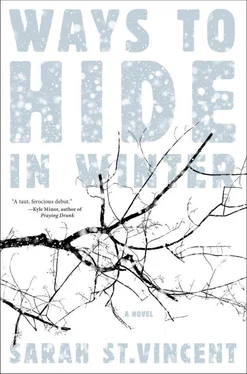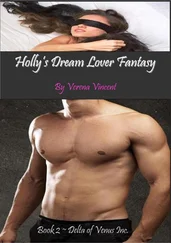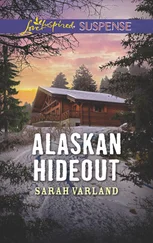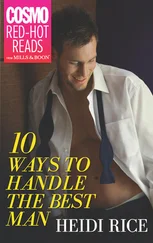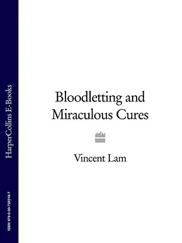I let out a small laugh and shook my head. “I’m not sure why you’re so interested in what I think. I can promise you I know a lot more about hamburgers than I do about literature.”
He leaned back and blew a puff of air through his lips. “Nonsense,” he said, unwinding the scarf from his neck and placing it on the counter. It was tattered and stained, coming apart at the ends. “Of course I’d like to know. Otherwise I wouldn’t ask.”
I was still looking at the scarf, at his bright eyes and ragged hair.
“Okay,” I said finally. “What I think, Daniil—”
“Danya,” he interrupted with a quick smile. “No need to be formal.”
“What I think, Danya, is that this Raskolnikov—the murderer—is driven insane by living in a world where people suffer so much, and for no reason, and where there’s this kind of horrible, relentless cruelty everywhere you look. And the people who are cruel, or who even just exploit others, like the old woman he kills, are never punished. They rarely even seem to feel guilty about what they’ve done.” The words sounded jumbled and confused, but I pressed on. “To him, killing her is like evening the score, or—I don’t know how to explain it. Taking an eye for an eye, I guess. In some ways, I think it’s that simple.”
He remained silent for a moment after I’d finished, watching my face. With a flicker of irritation—what was it about the fact of my standing behind a counter that made people feel free to gawk at me as if I were an animal in the zoo?—I turned away to pour the last of my drink down the drain.
He stopped me by drawing a breath and reaching for the book. “May I?”
I made a vague gesture.
“I agree with you in some respects,” he said. “But what I’ve always thought Raskolnikov can’t bear is that so many people around him are…” He drew a breath, seeming to choose his words with care. “…Sacrificing themselves for others. All the best characters in the story, the most noble and honest and innocent ones, do that. And ultimately it causes them great pain without giving any real benefit to the people they intended to help.” He closed his eyes, speaking almost as if to himself. “I think it angers him, knowing that so many of these sacrifices are useless. ‘Futile,’ perhaps, is the word I’m looking for. Yes, that’s it—‘futile.’” He opened his eyes again, giving me a self-conscious smile. “Sometimes these words just seem to escape from my memory, you know? I often regret that my English isn’t better.”
“What? Your English is perfect.” I was relieved at the change in subject. “You must have been living here for a long time.”
“Not at all, actually. In fact, I’m still a recent arrival, you might say.” He continued to smile lopsidedly, rising to his feet and sliding the book back toward me. “But perhaps,” he went on as he reached for his hat, “you could tell me what you think when you’ve finished? I’d be most interested to hear your views.” He looked away, then back at me again. “Only if you’d like that, of course.”
I watched him, reluctantly intrigued. “I don’t know. I guess I don’t see why not. You’ll be long gone by then, though, I’m sure.” I opened the cover to look at the due date, scratched there in pencil by a librarian with a shaky hand. Then, almost as an afterthought, I added, “You’re lucky your winter break starts so early. I don’t think most schools give the whole month of December off.”
For the briefest of moments, he was flustered. I could see it in his face, an expression of unease that flew over his features, although it passed almost immediately. His hands twitched toward one another, a small involuntary movement. When he replied, however, his voice was as amiable as before. “Yes,” he said. “It is very lucky. They want us to have a rest, you know—after our exams. And it’s a good thing, I’d say. After all, this really is a beautiful place, isn’t it? The perfect place to take a holiday.” Then, with a wave, he was gone.
Through the window, I watched his dark, shambling figure step off the porch and climb the path to the hostel, his shoulders jerking awkwardly with each step, his head bent.
Sliding the back of the ice cream case open, I reached for a butter knife and began chipping away at the fuzzy layer of ice that had accumulated inside. My mind, however, kept drifting back to the conversation. It wasn’t that anything he’d said was especially outlandish; if anything, his manners were almost painfully correct. But there was something odd behind the smiles, I thought, an uncertainty, as if he were afraid of something he might say.
On the other hand, who knew? Maybe he just wanted to be liked. It had been ages since I’d felt any impulses in that direction myself, but I could dimly remember what it felt like to care about that kind of thing. He was young and probably still did.
He would learn.
I swept the ice chips into my palm and stretched. It felt good to do physical work, even in such a small way. Before the accident, I had loved helping friends do farm work, stacking bales of hay, building sheds, mucking out stalls. There was something so pleasing about being able to see the results of all that effort, the stump that had been dug out, the crumbling wall that had been repaired, the door that had been re-hinged. There was something satisfying, too, about picking up a tool and knowing how to use it. You want that old stall divider taken down? Sure. Thinking of this, I looked down at the now-slightly-bent butter knife and smiled slightly. It was true that I couldn’t do most of those things anymore, but I still did what I could. Maybe there was something in me of my grandfather’s old stubbornness.
As afternoon slid into evening and I prepared to lock up, gathering my things into a pile, Jerry came in, bringing the smell of the woods with him. He was carrying a hunting rifle in one hand—an old one, I noticed, with a worn walnut stock. It must have been his father’s or grandfather’s, I thought as he propped it next to the door.
“Burger with onions,” he grunted. He was a big man, with a thick beard and a bad back that had gotten him laid off from the Pepsi plant in town. A dusty black cap was settled on his head.
“Sure.” I put the slab of frozen meat on the grill and covered it with a pot lid. It cooked more quickly that way, I had discovered. “You want the onions fried, too?”
“Naw, that’s all right.” He reached into his back pocket and fumbled for his wallet, his stomach bulging under his camouflage jacket. “How you been, Kathleen?”
“Been okay, I guess. You get anything out there?” I lifted my chin at the window, the woods outside.
“Nothing yet. Looks like it’s gonna be a hard season.”
“Yeah, that’s what everybody’s saying.”
He waited quietly the way he always did, his cap pulled low over his eyes, like someone who could never quite get used to being indoors. I decided to throw an extra patty onto the burger and reached back into the freezer.
“Thanks,” he said when it hit the grill with a hiss.
“No problem.”
Then, reaching into his jacket pocket, he pulled out a brown packet—a paper lunch bag, as usual—and put it on the counter.
Without speaking, I moved the bag to the shelf next to the cassette tapes and extracted two twenty-dollar bills from my purse, giving them to him with his change for the burger. He was shifting from foot to foot, I noticed, as if trying to ease a pain that couldn’t be eased. “How’s your back?”
He shrugged. “Not so good. Nice of you to ask, though. I might need surgery one of these days, it sounds like, but I’m trying to put it off as long as I can.” He began his slow stroll back to the door, holding the sandwich awkwardly in one hand and picking up the gun with the other.
Читать дальше
